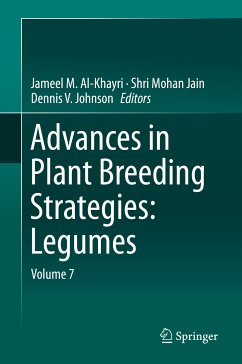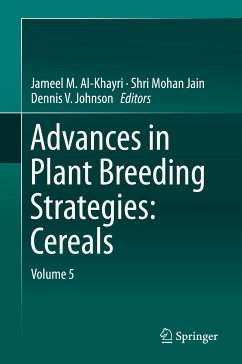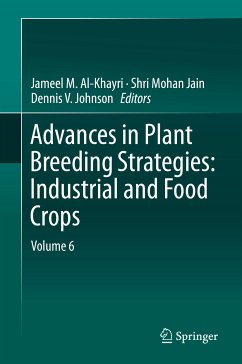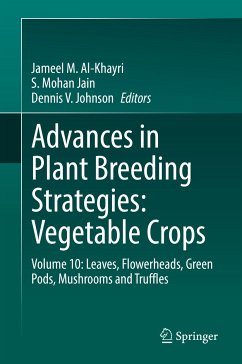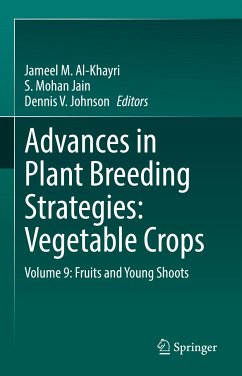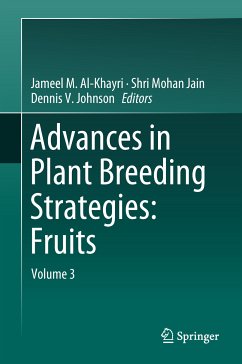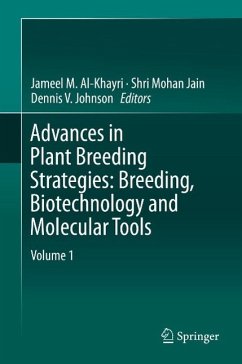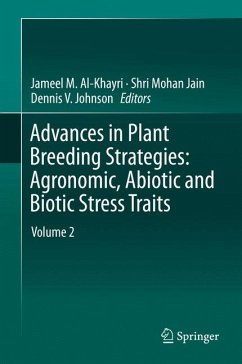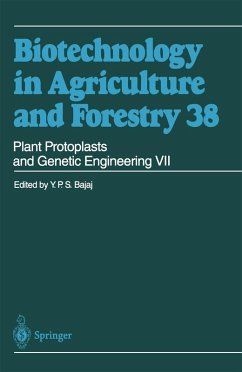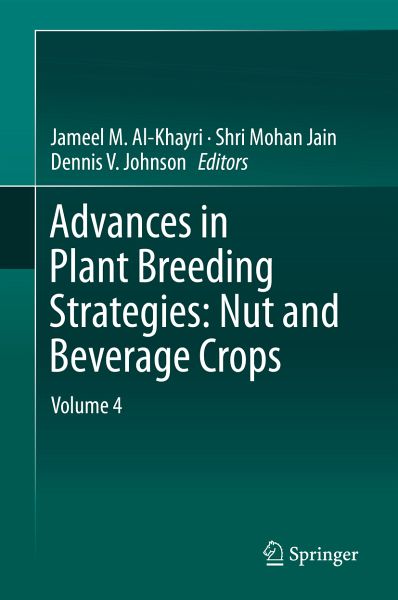
Advances in Plant Breeding Strategies: Nut and Beverage Crops (eBook, PDF)
Volume 4
Redaktion: Al-Khayri, Jameel M.; Johnson, Dennis V.; Jain, Shri Mohan
Versandkostenfrei!
Sofort per Download lieferbar
144,95 €
inkl. MwSt.
Weitere Ausgaben:

PAYBACK Punkte
72 °P sammeln!
Provides current assessment of research and development with respect to advances in breeding of nut and industrial crops individually
Contains a comprehensive coverage of traditional breeding methodology and biotechnological approaches
Chapters are written by an assemblage of internationally reputed scientists ad illustrated with high quality figures and tabulated data
Dieser Download kann aus rechtlichen Gründen nur mit Rechnungsadresse in A, B, BG, CY, CZ, D, DK, EW, E, FIN, F, GR, HR, H, IRL, I, LT, L, LR, M, NL, PL, P, R, S, SLO, SK ausgeliefert werden.



